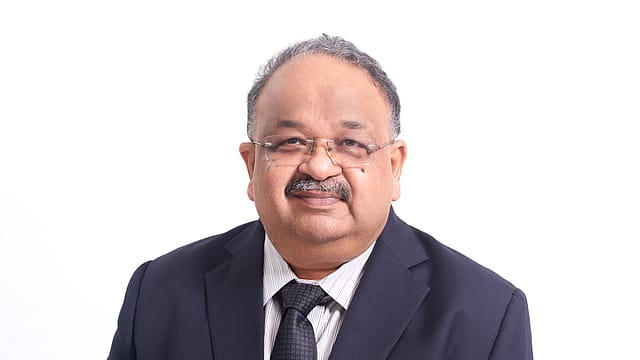UFO Moviez wants to bring new entrepreneurs to the cinema business
ADVERTISEMENT

Digital film-distribution company UFO Moviez was one of the first companies in India to digitise cinema content in 2005. Today, the Mumbai-based firm services 5,970 screens worldwide—including 5,289 in India and the rest in the Middle East, Mexico and the USA. UFO Moviez, an end-to-end technology service provider in film distribution segment, works with the biggest multiplexes chains in the country like PVR, INOX, and Cinepolis.
In an interview with Fortune India, Rajesh Mishra, CEO, India operations, UFO Moviez, talks about taking movies to cinema-starved audiences in rural parts of the country using innovative movies-on-wheels concept and combating piracy.
Edited excerpts:
Tell me about Caravan Talkies and how is it helping underserved audiences meet their entertainment needs?
It was a business model that we worked out for the rural market where there were no cinemas at all. For example, villages with a population of just 3000 and so on. Roughly a population of 20-25, 000 is required to sustain a cinema. But even in places with lesser population, people crave for entertainment options. That’s when we thought of this moving-talkies concept. The entire equipment is fitted in a van. We display the content from the vans on open grounds in small villages free of cost. It’s a totally advertisement-driven show. It’s basically us reaching out to the bottom of the pyramid. We have been doing it for last five years in the interiors of Maharashtra, Bihar, Bengal, Orissa, Rajasthan, MP etc.
January 2026
Netflix, which has been in India for a decade, has successfully struck a balance between high-class premium content and pricing that attracts a range of customers. Find out how the U.S. streaming giant evolved in India, plus an exclusive interview with CEO Ted Sarandos. Also read about the Best Investments for 2026, and how rising growth and easing inflation will come in handy for finance minister Nirmala Sitharaman as she prepares Budget 2026.
India is heavily unscreened as compared to other sizable markets like China. What is stopping the industry from growing?
In 2005, there were roughly around 10,000 screens. In 2019 also, this number has not gone up much. To open a cinema, one has to deal with the authority in that particular town. My personal view is that cinema has become a highly regulated medium. That’s the biggest challenge in the way of its growth. Each cinema owner when they have to open a theater, has to take 60 to 70 licenses. Some of which also becomes an annual feature. It is a big pain point. As it is, it’s a difficult business, if you end up making it more difficult, then it takes away the people. This scenario needs to be corrected and more people need to be encouraged to join the cinema business. We talk of competing with China but they get a lot of support from the government. They’re adding the number of screens we have every year. It should be more liberalised here with a single window opportunity for licensing.
Your franchise model, Nova Cinemaz now has 40 screens across India. What was the idea behind it?
Essentially, the growth of the cinemas is happening in the metros mostly. If you go to the lower or semi-metro areas, they want to engage in the cinemas but they don’t have the wherewithal to run and manage cinemas and get the content etc. Through our Nova model, we want to facilitate new entrepreneurs to come into the cinema business. It has been envisaged to stabilise the demand-supply gap in the local cinema business. A lot of people have the land, money and a desire to enter the business, our aim is to provide them services and facilitate them and work out a franchisee model rather than setting up screens ourselves. The aim of Nova is to make the movie-going experience affordable, entertaining and accessible.
Tell us about your expansion plans?
Roughly we would be targeting around 500 screens easily. We’re mainly looking at non-metro areas where there is large catchment of population and not much cinema facilities available. These are the areas that are appropriate for the Nova model. We want to focus on that.
Piracy has been a constant menace in this industry. What are you doing to combat piracy?
Digital cinema in itself a very secure format. It is encrypted in a way that it cannot be played out without the permission of the producer or the distributor. Also, whenever the content is played out, our system displays an invisible watermark which is not visible to the naked eyes but will get captured if someone is making a copy of it. The marker along with it also gets copied. So, whenever a copy from that film is circulating in the market, we can get to know from which cinema and at what time the copy was made curbing any future piracy from that cinema. So many actions have been taken using this technology.
